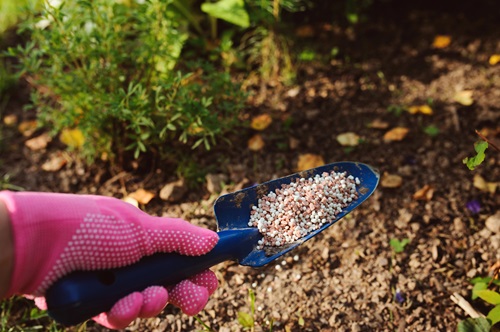
Taking care of your lawn and garden can be incredibly rewarding. Fertilizing is one of the key steps to ensure your plants get the nutrients they need to thrive. However, using fertilizer correctly is crucial to avoid harming your plants, yourself, and the environment. Let’s dive into how you can fertilize like a pro.
Understanding Fertilizer Basics
To begin with, fertilizer replenishes soil with essential nutrients that might be lost through runoff, overplanting, and pH imbalances. Most fertilizers contain a mix of nitrogen, phosphorus, and potassium, often referred to as NPK. Each of these nutrients plays a vital role.
For example, nitrogen promotes leaf and stem growth, phosphorus aids in root development, and potassium enhances flower and fruit production while boosting disease resistance. Additionally, fertilizers may include micronutrients like magnesium, sulfur, and calcium, plus fillers to stabilize the formula and combat pests.
The Importance of NPK Ratios
The NPK ratio on fertilizer bags, such as 10-10-10 or 5-5-5, indicates the percentage of these key nutrients. Different plants have varying needs. For example, leafy greens might require more nitrogen, while established plants may benefit from a balanced mix or higher potassium levels. So, understanding these ratios helps you choose the right fertilizer for your specific plants.
Start with a Soil Test
Before fertilizing, it’s smart to test your soil. Soil tests, which can be purchased online or done by professionals, reveal the pH level and nutrient content. This information helps you select the best fertilizer and prevents over or under-fertilization, which can harm plants and the environment. For example, too much nitrogen can burn plants or contaminate water supplies.
Navigating the Garden Center
Choosing fertilizer can be overwhelming. Begin by deciding between fast-release and slow-release options. Fast-release fertilizers provide an immediate nutrient boost, ideal for new lawns or struggling plants. However, slow-release fertilizers are better for ongoing lawn maintenance, reducing the risk of nutrient runoff and plant burn.
You also need to choose between organic and synthetic fertilizers. Organic fertilizers, derived from natural sources like composted manure, release nutrients slowly and improve soil health over time. On the other hand, synthetic fertilizers, made from chemicals, act quickly and are available in higher concentrations, meaning you need less product for the same effect.

Fertilizing in Conway SC
Timing Is Everything
Plants benefit most from fertilizer just before and during their peak growing phases. Applying fertilizer in early spring can prepare the soil for planting, while additional applications during the growing season can support vigorous growth. If plants are struggling, a targeted application might help. However, make sure that lack of nutrients is the actual issue by ruling out other factors like pests or insufficient water.
Grass Care Tips
Different grasses have different fertilization needs. If you’re unsure about your grass type, consult a local landscaping expert in Conway SC. Generally, cool-season grasses benefit from spring and fall fertilization, while warm-season grasses thrive with late spring or early summer applications. Timing your fertilization correctly helps avoid burning your lawn and ensures healthy, green growth.
Fertilizing Your Garden
For gardens, fertilize before planting to enrich the soil. As plants grow, follow specific guidelines for each type. For example, tomatoes need both early and mid-season feedings, while many trees and shrubs only need a boost after winter. Always check seed packet instructions for the best results.
Application Tips
Once you’ve chosen the right fertilizer in Conway SC and time, it’s important to apply it correctly:
- Use a drop or broadcast spreader for even distribution.
- Wear gloves if applying by hand.
- Avoid fertilizing dry or drought-stressed plants; water the day before and let the area dry before fertilizing.
- Follow the dilution instructions on the fertilizer bag.
- Lightly water the area after application to activate the fertilizer and prevent runoff.
- Avoid fertilizing before heavy rain to reduce nutrient runoff.
Consider Professional Help
So, if you’re new to fertilizing, hiring Conway Lawn Care Service can simplify the process and ensure your lawn and garden get the right care. Professional fertilization services can range from $50 to $75 per application or around $300 for a season package, depending on your lawn’s size.
For a lush lawn and vibrant garden, fertilizing properly is essential. Get started with these tips and watch your plants thrive. Call Conway Lawn Care Service now.
Like our Facebook page for more great info about heating and cooling services.
No comments:
Post a Comment